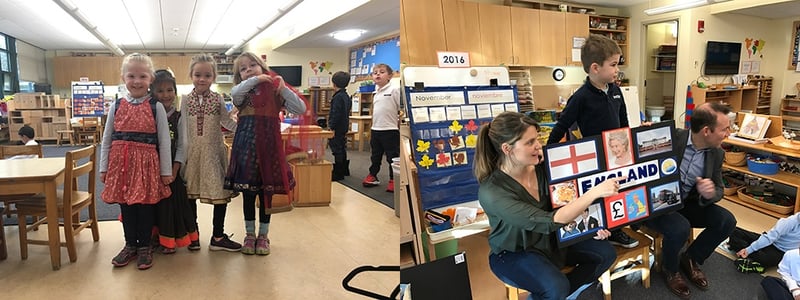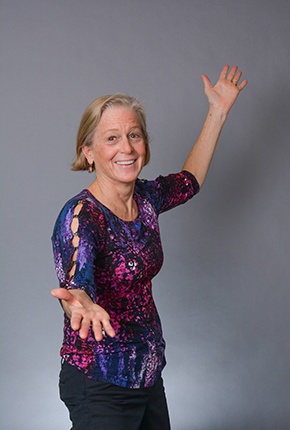Cultural diversity is an integral part of International Baccalaureate (IB) schools. Given the diversity of our school, it's important to recognize and acknowledge the different cultures and backgrounds of our students and families.
Children are influenced and molded by the culture and area in which they live. They identify with the values, norms, and traditions that are part of their family and the counties or countries they're from. Culture exists in all families and helps to define how we interact with one another.
Teachers can foster cultural awareness and international mindedness in their classroom in a variety of ways. In Primary, we invite children and their families to come into the classroom to share and talk about their country, their culture, their language, their traditions or holidays they celebrate.
These presentations often include traditional food to taste, native clothing to try on, songs to sing (often in another language) and photos or videos to watch. Empowering children to share in this way not only acknowledges the importance of their culture, but also encourages inclusion, tolerance and respect, important tenets of both Montessori and IB.
By sharing in front of the class in this manner, the child demonstrates several attributes of the IB Learner Profile, such as being a risk taker, open-minded, communicator, knowledgeable and reflective. It also allows the student to take a leadership role among their peers as the child teaches the class about their culture. And, as students share with one another in these concrete interactive ways, culture becomes an individual felt experience versus an abstract concept.

Giving a presentation to the class is a powerful way to include new families, particularly if they enter the school mid-year. A few years ago we had a family join us in January from Australia. To ease the transition into a new country, new culture and new home, we invited the family to come in and talk with us about Australia.
First, we learned that Australia is the only country that is also a continent! Next, we compared Australia to the United States, and noted many differences and similarities. This proved to be a fun and engaging activity. We discovered that while we both speak English, Australians drive on the left side of the road while in the U.S. we drive on the right side; when they have summer, we have winter; they shorten some words (sunglasses-sunnies; breakfast-brekkie) and they are famously laid back and relaxed. By giving this presentation the child and the family felt more welcome and included in our class and within the school.

In an increasingly diverse and challenging world, it is critical that schools incorporate a culturally responsive curriculum. It is important for schools to remember that while each individual is unique, we need to recognize and understand our differences. By including opportunities to explore our varied cultures and acknowledging our diversity, we hope to promote awareness, tolerance and acceptance in our students.



